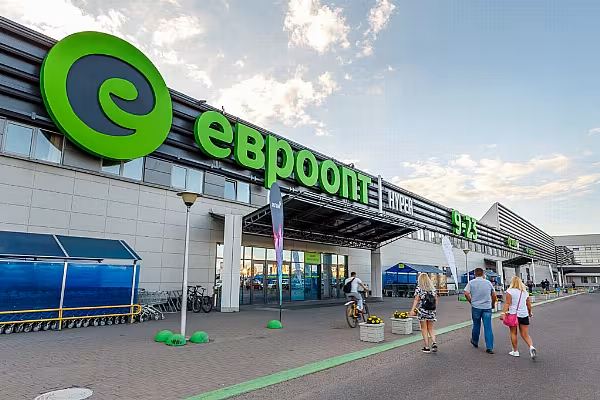Belarus' largest grocery retailer Eurotorg is set to become the country's first company to list on an overseas stock market, as economic stability and a friendlier business environment allow non state-run enterprises to flourish.
Eurotorg, which has a 19 percent market share and is five times larger than its closest domestic competitor, will file documents to Britain's regulator needed to hold an initial public offering as early as this week.
The company, which last year became the first from Belarus to issue a Eurobond, expects to raise around $200 million in new money. A source familiar with the matter said the company was valued at up to $1.5 billion on a pre money basis, which does not take into consideration the capital the company will receive in the IPO.
Important Step
It's an important step for Belarus, whose strongman President Alexander Lukashenko has, since a financial crisis in 2014-2015, loosened his grip on private enterprises and cut subsidies to state firms that have dominated since Soviet times.
Inflation is stable at a historic low of around 5 percent while the economy is growing at around 4.5 percent a year.
"The economy probably hasn't been in a healthier state in the last 20 years," Eurotorg Chief Executive Andrei Zubkou told Reuters in an interview.
Proceeds from the listing will be used to partially repay the company's foreign currency debt, and its core shareholders are expected to retain their majority shareholding.
The supermarket chain will continue expanding by opening new stores in small towns and rural areas where Zubkou says it has practically no competitors. It has already launched 100 such shops.
"1.8 million people live in small settlements. This is essentially a new market," said Zubkou.
Set up in the 1990s as a wholesaler, Eurotorg is the country's largest private sector employer with around 40,000 workers.
The IPO will give the company access to capital markets that are currently inaccessible to companies in Belarus.
Similar Market
According to Zubkou, Belarusian retail resembles the market in neighbouring Poland, a European Union member, around a decade ago, meaning firms have room to grow.
At the same time, Belarus' protectionist policies have allowed companies to develop in the absence of international competition, he said.
Any foreign company wanting to enter Belarus must comply with rules such as stocking a high proportion of Belarusian goods on store shelves.
"We see no potential for the arrival of powerful foreign players," Zubkou said.
Last year, Belarus cut red tape for businesses and made it harder for state officials to carry out inspections or shut companies' operations without a court order. The authorities also put a moratorium on the introduction of new taxes or the increase of current taxes until 2020.
"We have a feeling that Belarus as a whole, as a story, is louder and brighter today," Andrei Matsiavin, Eurotorg's Chief Strategy and Investment Officer, told Reuters.














